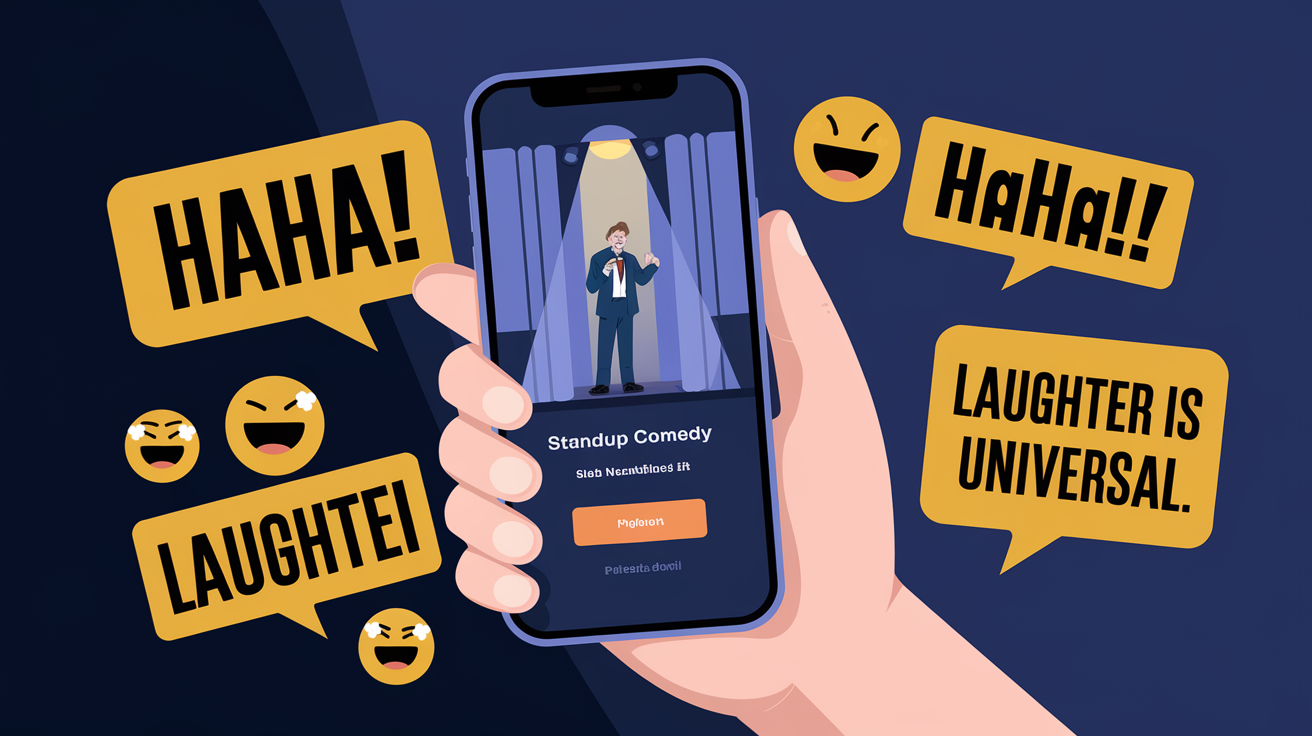The worlds of artificial intelligence and comedy are colliding in fascinating ways, and I’ve been tinkering with something rather interesting – an AI-powered stand-up comedian. But before you imagine a robot in a smoking jacket telling “dad jokes”, let me walk you through how this actually works.
You can download the app. This is offered as is, for free, no liability taken for any issues:
- Windows (180mb)
- macOS (arm) (173mb)
It all started when ElevenLabs dropped their Flash v2 model, a piece of tech that can generate speech faster than you can say “thanks folks, I’ll be here all week” – we’re talking under 75 milliseconds. As someone who’s spent years covering AI developments, this caught my attention immediately.
At the heart of our virtual comedian is the Llama 3.3 70B model running on Groq’s infrastructure. Think of it as the AI’s brain, responsible for crafting the jokes and routines. It’s like having a writer’s room packed into a single model, but instead of coffee-fuelled comedy writers, we’ve got algorithms crafting the punchlines.
I built the application using Electron – a bit of kit that lets developers create desktop apps that work across different operating systems. Whether you’re team Windows, Mac, or Linux, this comedian’s got you covered. During development, I had some help from ChatGPT and Claude (yes, I see the irony in using AI to build an AI), which helped streamline the code and iron out some particularly stubborn bugs.
How It Actually Works
The process is surprisingly straightforward: you feed the system a topic – anything from quantum physics to why cats always land on their feet – and the Llama model gets to work crafting a routine. Once it’s got the script sorted, ElevenLabs’ Flash v2 model turns it into speech faster than most humans can form a sentence.
The real magic happens in how these different technologies work together. It’s a bit like conducting an orchestra, where each component needs to play its part perfectly to create something worth listening to.
As someone who’s spent countless hours both writing about AI and developing games, I can see enormous potential here. We could add features that learn from audience reactions, much like how a human comedian might adapt their set based on which jokes land and which ones don’t. There’s also scope for multilingual support – imagine an AI comedian that can deliver the same routine in different languages while maintaining the cultural nuances that make comedy work.
The Bottom Line
This project sits at an fascinating intersection of entertainment and artificial intelligence. While we’re not about to see AI headlining at the Apollo, it’s a compelling example of how these technologies can come together to create something new and interesting.
It’s worth noting that this isn’t just about making people laugh – though that’s certainly part of it. The same technology that enables an AI to deliver a well-timed punchline could power more serious applications in education or customer service. The key is that ultra-fast speech synthesis combined with sophisticated language models opens up possibilities we’re only beginning to explore.
Whether this becomes the future of entertainment or remains an interesting technological experiment, it’s certainly given me plenty to think about as both a tech journalist and developer. Now, if you’ll excuse me, I need to go teach my AI the difference between a good joke and a dad joke – though I suspect it might already know more than it’s letting on.
The code for the app is available on GitHub.


No responses yet